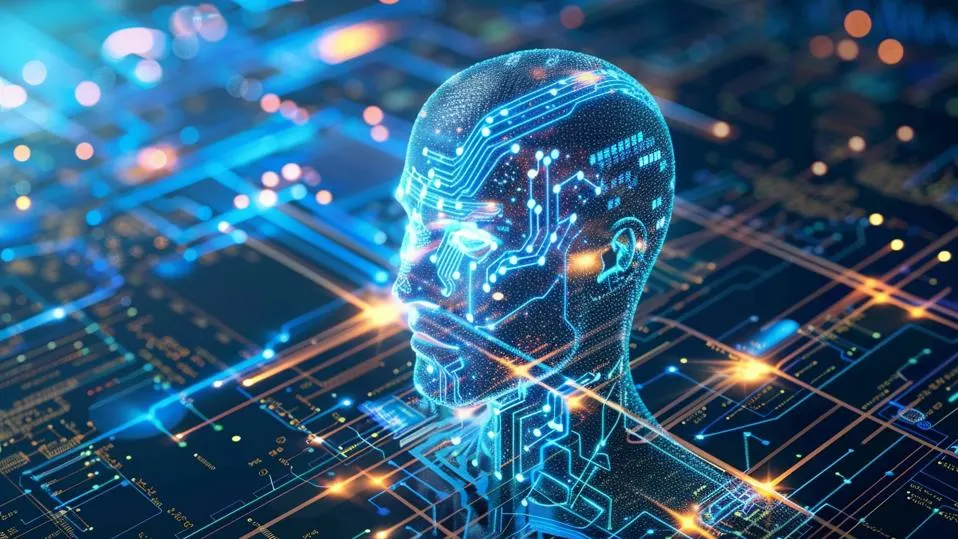Metaverse vs. Multiverse – What’s the Difference?
26 November 2021
With all of the current buzz about virtual and physical reality – and how the line is starting to blur between the two – it’s no wonder we’re a little confused about some terms. Find out the difference between the multiverse and the metaverse in this post.
Understanding the key differences between the two concepts can not only give us a better understanding of the world we live in; it can also help your company stay competitive in a world of rapidly emerging technologies.
So, what are the basic differences between the metaverse and the multiverse?

The Multiverse
The multiverse is an ecosystem of many virtual worlds – each with its own properties, characteristics, and laws.
TechCrunch states that we're currently in the multiverse era of technology, where "the virtual worlds of games expand to become mainstream hubs for social interaction and entertainment." Social media platforms, online games, and MMOs (massive multiplayer online games) are all part of the multiverse.
"The virtual worlds of multiplayer games — still accessed from phones, tablets, PCs and consoles — are our stepping stones during this next phase,” TechCrunch’s Eric Peckham says. “Multiverse virtual worlds will come to function almost like new countries in our society, countries that exist in cyberspace rather than physical locations but have complex economic and political systems that interact with the physical world.”
The Metaverse
The metaverse is a shared, persistent digital environment where users can work, play sports, go to concerts, watch movies, hang out – or anything else they want to do.
Tech companies from Microsoft to Meta to Epic Games are putting the technology together to build the metaverse, but we likely won’t see it for another decade or so. The technology will likely combine aspects of social media, cryptocurrencies, augmented reality (AR), virtual reality (VR) and online gaming so users can act and interact virtually.
“I’m fairly sure at this point that the metaverse is going to be a new economy that is larger than our current economy,” says Jensen Hang, CEO of metaverse investor and computer chip manufacturer NVIDIA.
The entire metaverse will be interconnected or ordered into one universe to provide the best possible experience for users who want to move through the virtual world via their avatar.
Venture capitalists are already jumping on board the metaverse trends, throwing money behind startups like Klang Games, Singularity 6, and Darewise Entertainment that are building toward a virtual future in the metaverse.
So, how do they differ?
- The metaverse is the conceptual idea that one day we will have an entirely connected virtual world that enables users to seamlessly move from one part (e.g., gaming) to another (e.g., dating, shopping, working, or anything else).
- The multiverse is more disconnected, where individual digital ecosystems exist, but they don't offer people the ability to seamlessly move between them or have a unified user experience. This is where we are today, where you can have a virtual work environment, gaming environments like Fortnite or Roblox, and social environments Meta’s Horizon, but they don’t connect.
Whether we will ever get to a unified metaverse is unclear, but I would say it is highly unlikely. What I envisage is a world where we might have multiple environments that we could describe as metaverses but that might be competing with each other. I would describe this as a multi-metaverse world, where companies like Meta might build one metaverse, and others like Tencent build another.
Want to stay on top of the latest tech trends, and how they’re impacting companies all over the world? Join my newsletter, subscribe to my YouTube channel, and check out my latest book, Extended Reality in Practice: 100+ Amazing Ways Virtual, Augmented, and Mixed Reality Are Changing Business and Society.
Related Articles
2025’s Tech Forecast: The Consumer Innovations That Will Matter Most
Consumer technology covers all of the tech we buy to make our lives more convenient, productive or fun.[...]
7 Healthcare Trends That Will Transform Medicine In 2025
Healthcare has evolved dramatically in recent years, with technology driving countless new opportunities, just as demographic and societal factors have created new challenges.[...]
The Simple ChatGPT Trick That Will Transform Your Business AI Interactions
I believe ChatGPT and other generative AI tools can help pretty much any business.[...]
The Third Wave Of AI Is Here: Why Agentic AI Will Transform The Way We Work
The chess pieces of artificial intelligence are being dramatically rearranged. While previous iterations of AI focused on making predictions or generating content, we're now witnessing the emergence of something far more sophisticated: AI agents that can independently perform complex tasks and make decisions.[...]
How Generative AI Will Change Jobs In Cybersecurity
Ensuring robust cybersecurity measures are in place is more important than ever when it comes to protecting organizations and even governments and nations from digital threats.[...]
The 10 Most Important Banking And Financial Technology Trends That Will Shape 2025
As technological disruption and economic uncertainty continue to reshape the financial landscape, alongside dramatic shifts in consumer behavior and regulatory requirements, 2025 promises to be both challenging and opportunistic for banking and financial services.[...]
Sign up to Stay in Touch!
Bernard Marr is a world-renowned futurist, influencer and thought leader in the fields of business and technology, with a passion for using technology for the good of humanity.
He is a best-selling author of over 20 books, writes a regular column for Forbes and advises and coaches many of the world’s best-known organisations.
He has a combined following of 4 million people across his social media channels and newsletters and was ranked by LinkedIn as one of the top 5 business influencers in the world.
Bernard’s latest book is ‘Generative AI in Practice’.










Social Media